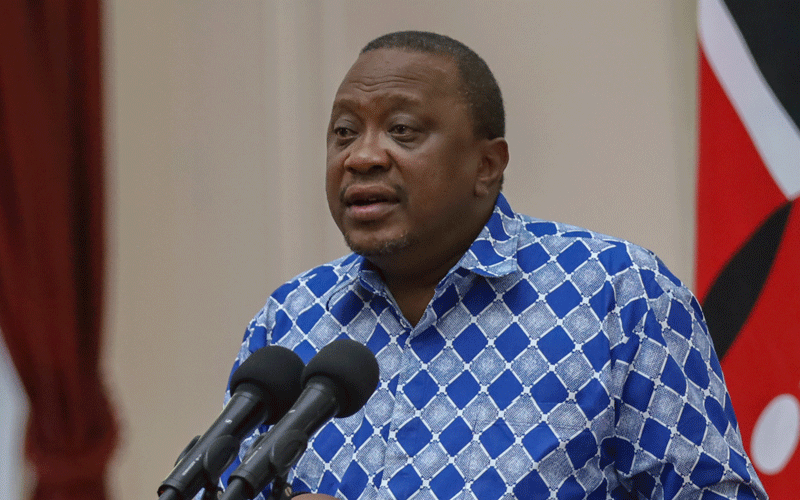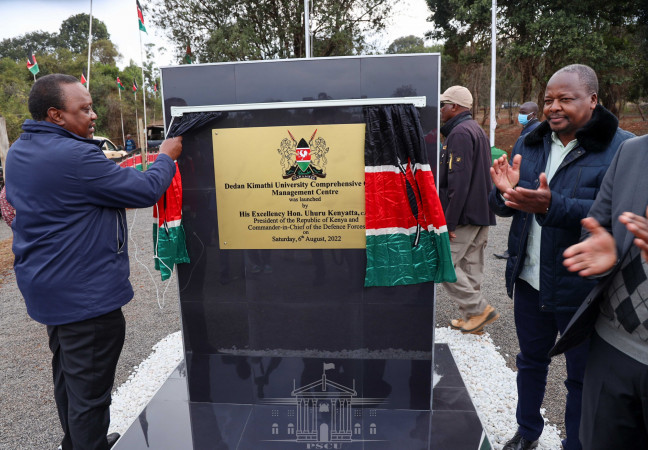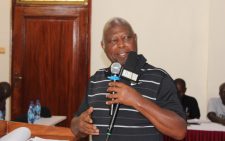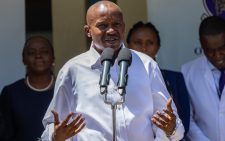We can reopen economy without endangering lives

President Uhuru Kenyatta has signaled that the government is preparing to reopen the economy.
Two months after the government imposed stringent restrictions to stem the rising tide of covid-19 infections, businesses have been badly battered. Containment measures including asking people to stay at home, a national dusk to dawn curfew, and severe movement restrictions have been imposed in the infection hotspots, especially Nairobi and Mombasa.
It is clear that the stringent movement restrictions in place cannot continue much longer without inflicting severe damage to the economy.
Uhuru announced several economic stimulus measures that will avail cashflow to businesses to enable them to reboot.
The reopening of economies is now happening globally.
However, Kenya must proceed with a lot of caution, as reopening is fraught with risks. Nobody can contest that Kenya has done well.
Though infections are cumulatively rising, the expected spikes are yet to emerge.
Any inauspicious reopening could result in a spike that could send the country back into severe movement restrictions.
The country cannot afford to reverse the substantial gains it has made. Reopening has to be done right, with a phased programme comprising the requisite containment measures in place.
Restaurants and eateries have already been allowed to reopen in the initial phase, with strict protocols.
Truck drivers are also in full operation, again with very strict protocols especially for long distance truckers. These drivers remain a very weak link in the fight against the virus.
The country’s borders with Tanzania and Somalia must remain closed as the infections in those countries seem out of control and pose a major threat to Kenya.
The localised lockdown regime that has been imposed on some areas seems to be effective, and could be a key containment strategy going forward.
After infections spiked in Eastleigh in Nairobi, as well as Old Town in Mombasa, the government imposed cessation of movement in and out of the two areas, and undertook mass testing there.
The spike seems to have been brought under control, meaning that this is now a tried and tested strategy for closing down an infection spike.
Other successes include Kilifi county, one of the counties which had the earliest cases of infection, but which has remained virus-free for a month now and counting.
The containment strategy going forward should have several pillars.
Firstly, the Ministry of Health must formulate sector specific protocols for all sectors. The protocols must be adapted to the nature of business. Special attention must be paid to sectors that attract congregation.
The second is a phased opening, so that the Ministry of Health can monitor the rollout to see how their interventions are working.
Thirdly, high risk areas must remain closed for now. Businesses such as bars, churches and mosques, political gatherings, and all other gatherings must remain banned for now.
The restrictions and protocols governing burials must continue for the foreseeable future.
Fourth, schools must remain closed until further notice. The Education Sector Covid-19 response team that was established by Education Cabinet Secretary George Magoha, must take its time to come up with a foolproof strategy for reopening schools and colleges. Don’t rush this, otherwise disaster waits!
Fifth, it will be premature to remove travel restrictions into and out of Nairobi and Mombasa. These are where all infections in the counties have been birthed and disseminated from.
Special protocols must be put in place for anybody wanting to leave these two epicentres, including covid-free certificates. Counties have so far ducked the virus bullet. The country must not tempt fate.
As the economy reopens, emphasis by the country’s national response team must shift to enforcement of containment measures.
A special enforcement unit comprising regular police, undercover police, intelligence officers, and public health officers should be in place in all counties to enforce measures. That way, the country can reopen, and still remain ahead of the curve.
The contact tracing team, that has so far done a stupendous job, must remain on high alert until the last infected person has been healed.
As the World Health Organisation warned, the world will have to learn to live with the virus for the foreseeable future. We must, therefore, learn how to navigate the new jungle safely. — [email protected]













